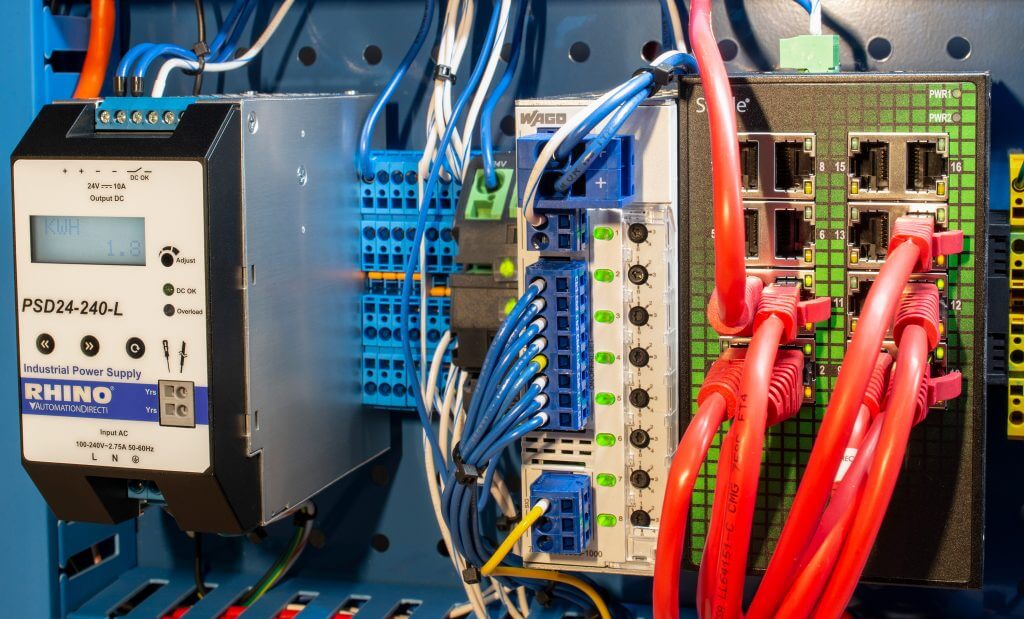In the quest for sustainability and energy efficiency, technology continues to play a pivotal role in reshaping the way we power our homes. One of the innovative solutions making waves in the residential energy sector is the electronic circuit breaker. These modern marvels are revolutionizing the traditional role of circuit breakers by offering advanced capabilities that not only protect electrical systems but also optimize energy usage, enhance safety, and enable remote monitoring and control. In this article, we will explore how electronic circuit breakers are transforming energy efficiency in modern homes.
The Evolution of Circuit Breakers
Traditional circuit breakers have been a staple in homes for decades, serving the essential function of protecting electrical circuits from overloads and short circuits. However, with the rise of smart technologies and the growing demand for energy-efficient solutions, electronic circuit breakers have emerged as a significant upgrade from their conventional counterparts.
Key features of electronic circuit breakers include:
- Advanced monitoring capabilities to track energy usage in real time.
- Remote access and control through connected devices such as smartphones and tablets. Browse here to know more about electronic circuit breakers.
- Ability to detect faults and issues proactively, reducing the risk of electrical fires.
- Integration with smart home systems for seamless automation and energy optimization.
- Enhanced safety features such as arc fault detection and ground fault protection.
Benefits of Electronic Circuit Breakers
The adoption of electronic circuit breakers offers a wide range of benefits for homeowners looking to improve energy efficiency and enhance the overall safety and performance of their electrical systems.
Some of the key advantages include:
- Energy monitoring: Electronic circuit breakers provide real-time data on energy consumption, allowing homeowners to identify inefficiencies and make informed decisions to reduce their electricity usage.
- Remote control: With the ability to access and control circuit breakers remotely, homeowners can turn off power to specific circuits or appliances when not in use, leading to energy savings.
- Enhanced safety: Electronic circuit breakers offer advanced protection features such as arc fault detection and ground fault protection, reducing the risk of electrical hazards and fires.
- Automation: Integration with smart home systems enables automation of energy management tasks, such as scheduling power usage based on peak hours or energy tariffs.
- Improved reliability: By detecting faults and issues early on, electronic circuit breakers help prevent electrical failures and costly repairs, contributing to a more reliable electrical system.
Integration with Smart Home Systems
One of the most significant advantages of electronic circuit breakers is their seamless integration with smart home systems, allowing homeowners to create custom energy profiles, automate energy-saving routines, and monitor power usage from anywhere.
Key features of integration with smart home systems include:
- Compatibility with popular smart home platforms such as Amazon Alexa and Google Home.
- Ability to create customized energy-saving schedules and routines based on individual preferences.
- Voice command functionality for hands-free control over electrical circuits and appliances.
- Real-time notifications and alerts for power outages, faults, or unusual energy consumption patterns.
- Data analytics for tracking energy usage trends and identifying opportunities for further optimization.
The Future of Energy Efficiency in Homes
As the demand for sustainable and energy-efficient solutions continues to grow, electronic circuit breakers are poised to play a significant role in shaping the future of residential energy management. With their advanced capabilities, remote access features, and seamless integration with smart home systems, electronic circuit breakers are empowering homeowners to take control of their energy usage like never before.
Key trends shaping the future of energy efficiency in homes include:
- Increased adoption of smart home technologies for holistic energy management.
- Growth of renewable energy sources such as solar power and their integration with smart electrical systems.
- Rise of energy-efficient appliances and devices that work in tandem with electronic circuit breakers to optimize power usage.
- Development of predictive maintenance algorithms and artificial intelligence for proactive monitoring of electrical systems.
- Regulatory initiatives promoting energy conservation and the use of smart technologies in residential buildings.
